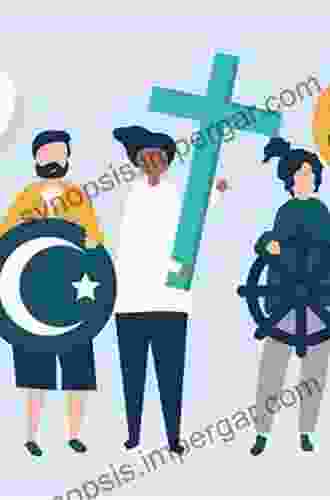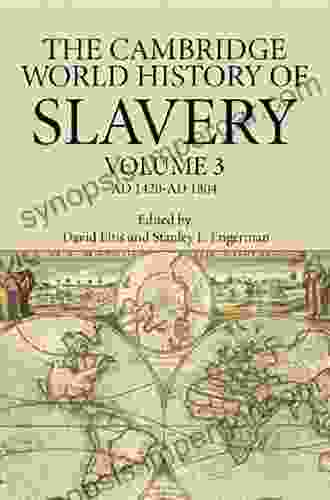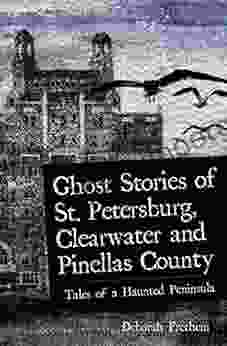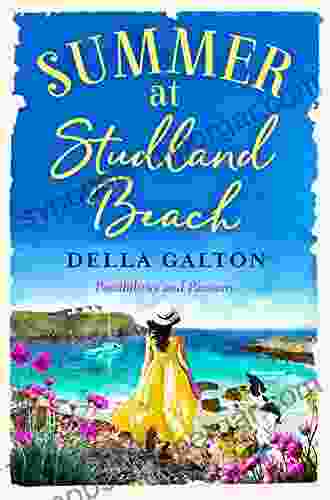Religion, Society, and Power: Unlocking the Interwoven Threads of Human Experience

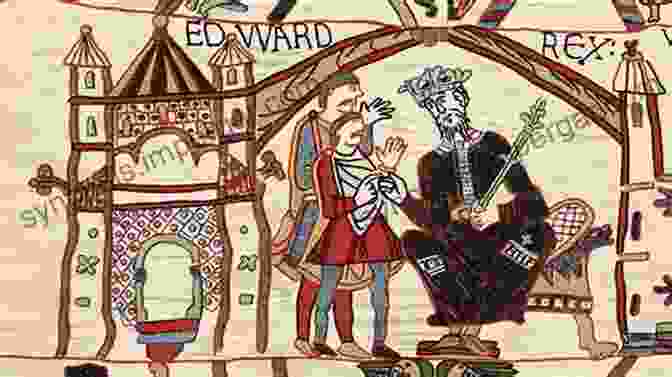
Throughout the tapestry of human history, religion, society, and power have been inextricably linked, forming a complex and dynamic triad that has shaped civilizations, guided beliefs, and influenced the course of events. From the ancient temples to the modern megachurches, religious institutions have played a pivotal role in organizing societies, shaping social norms, and wielding political power. This article delves into the multifaceted relationship between religion, society, and power, exploring their historical interplay and the profound implications for human experience.
The Genesis of Religion and Society
The origins of religion and society are deeply intertwined, with the emergence of early religious beliefs providing a framework for understanding the world and organizing human communities. In hunter-gatherer societies, shamanic practices and animistic beliefs served as a way to connect with the natural world and ensure the well-being of the group. As societies became more complex, organized religions emerged, offering a comprehensive system of beliefs, rituals, and moral codes that guided social behavior and reinforced social hierarchies.
4.6 out of 5
| Language | : | English |
| File size | : | 5783 KB |
| Text-to-Speech | : | Enabled |
| Screen Reader | : | Supported |
| Enhanced typesetting | : | Enabled |
| Word Wise | : | Enabled |
| Print length | : | 365 pages |
Religion and Social Structure
Religion has played a central role in shaping social structures and maintaining Free Download within societies. Religious institutions often establish norms and values that influence social interactions, family patterns, and gender roles. For example, the Abrahamic religions (Judaism, Christianity, and Islam) emphasize the importance of marriage and family, while many Eastern religions such as Buddhism and Hinduism promote monasticism and celibacy. Religious beliefs also shape economic systems, as evidenced by the prohibition of usury in some religions and the encouragement of charity and philanthropy in others.
Religion and Political Power
Throughout history, religion has been a powerful force in politics, often serving as a tool for legitimizing authority and controlling the masses. In ancient Egypt, for example, the pharaoh was considered a divine ruler, and the priesthood played a central role in maintaining the political and social Free Download. In medieval Europe, the Catholic Church wielded enormous political influence, crowning kings and emperors and shaping the course of European history. Even in modern secular states, religion continues to influence political debates and public policy, especially in areas such as abortion, same-sex marriage, and religious freedom.
The Impact of Power on Religion
While religion has often been used to justify and maintain power, the relationship is not always one-sided. Power can also influence and shape religious beliefs and practices. Ruling elites have sometimes manipulated religious institutions to serve their own political agendas, while marginalized groups have used religion to challenge oppressive systems and advocate for social change. The Protestant Reformation, for example, was sparked by a desire for religious reform but also had profound political implications, contributing to the rise of nation-states and the decline of the feudal system.
Religion and Social Conflict
Religion can be a source of both unity and conflict within societies. Shared religious beliefs can create strong bonds between people, fostering a sense of community and belonging. However, religious differences can also lead to tension and conflict, as competing belief systems and claims to truth collide. The history of the Middle East is replete with examples of sectarian violence, while religious persecution has been a recurring theme throughout human history. In recent decades, the rise of religious fundamentalism and extremism has further exacerbated religious tensions and contributed to global conflict.
The Future of Religion, Society, and Power
The relationship between religion, society, and power is constantly evolving, shaped by changing social, political, and technological factors. In the 21st century, the rise of secularism and the decline of traditional religious institutions in some parts of the world have raised questions about the future of religion. However, religion continues to play a significant role in many societies, and its influence on social and political life is likely to persist for the foreseeable future.
The relationship between religion, society, and power is a complex and multifaceted one that has profoundly shaped human history and continues to influence our lives today. Religion provides a framework for understanding the world, organizing societies, and shaping social norms. Power, in turn, can be used to manipulate and control religious beliefs and practices, while religion can also be a source of resistance and social transformation. As we navigate the challenges and opportunities of the future, it is essential to understand the dynamic interplay between these three forces and their implications for the human experience.
4.6 out of 5
| Language | : | English |
| File size | : | 5783 KB |
| Text-to-Speech | : | Enabled |
| Screen Reader | : | Supported |
| Enhanced typesetting | : | Enabled |
| Word Wise | : | Enabled |
| Print length | : | 365 pages |
Do you want to contribute by writing guest posts on this blog?
Please contact us and send us a resume of previous articles that you have written.
 Book
Book Novel
Novel Page
Page Chapter
Chapter Text
Text Story
Story Genre
Genre Reader
Reader Library
Library Paperback
Paperback E-book
E-book Magazine
Magazine Newspaper
Newspaper Paragraph
Paragraph Sentence
Sentence Bookmark
Bookmark Shelf
Shelf Glossary
Glossary Bibliography
Bibliography Foreword
Foreword Preface
Preface Synopsis
Synopsis Annotation
Annotation Footnote
Footnote Manuscript
Manuscript Scroll
Scroll Codex
Codex Tome
Tome Bestseller
Bestseller Classics
Classics Library card
Library card Narrative
Narrative Biography
Biography Autobiography
Autobiography Memoir
Memoir Reference
Reference Encyclopedia
Encyclopedia David Pentecost
David Pentecost Deborah Kennedy
Deborah Kennedy Diana Brain
Diana Brain Delia Ephron
Delia Ephron Dee Dee Moreland
Dee Dee Moreland David Rindos
David Rindos Emily Ley
Emily Ley Deborah M Merrill
Deborah M Merrill Diego A Forero
Diego A Forero Michael Senoff
Michael Senoff Javier Rhoden
Javier Rhoden Nathan Macdonald
Nathan Macdonald Reshard Alexander
Reshard Alexander Sir Henry Marion Durand
Sir Henry Marion Durand Dennis R Arter
Dennis R Arter Stephen Skowronek
Stephen Skowronek Deborah E Larbalestrier
Deborah E Larbalestrier Diane Ravitch
Diane Ravitch David Smithweck
David Smithweck Dede Cummings
Dede Cummings
Light bulbAdvertise smarter! Our strategic ad space ensures maximum exposure. Reserve your spot today!
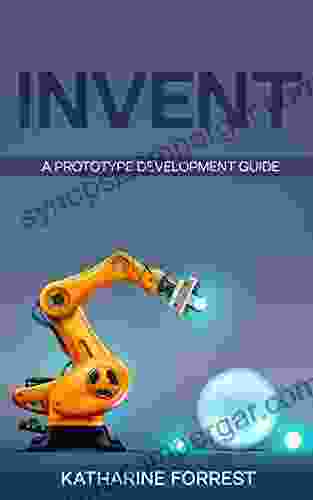
 Owen SimmonsThe Ultimate Guide to Inventing and Prototyping: A Comprehensive Roadmap to...
Owen SimmonsThe Ultimate Guide to Inventing and Prototyping: A Comprehensive Roadmap to...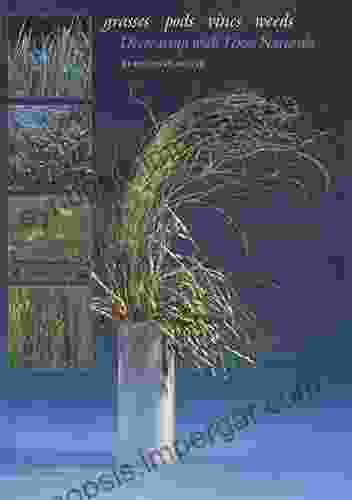
 Chase SimmonsDiscover the Enchanting World of Texas Naturals: A Journey Through 'Grasses...
Chase SimmonsDiscover the Enchanting World of Texas Naturals: A Journey Through 'Grasses... Pablo NerudaFollow ·19k
Pablo NerudaFollow ·19k Chase SimmonsFollow ·7.3k
Chase SimmonsFollow ·7.3k Dashawn HayesFollow ·7.4k
Dashawn HayesFollow ·7.4k Jamison CoxFollow ·7.1k
Jamison CoxFollow ·7.1k Kirk HayesFollow ·10.1k
Kirk HayesFollow ·10.1k Gus HayesFollow ·18.6k
Gus HayesFollow ·18.6k John SteinbeckFollow ·6.2k
John SteinbeckFollow ·6.2k Dave SimmonsFollow ·9.3k
Dave SimmonsFollow ·9.3k
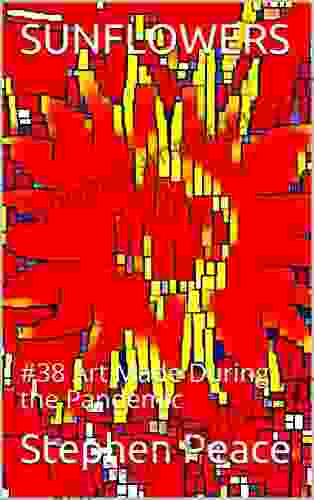
 Ivan Turgenev
Ivan Turgenev38 Art Made During The Pandemic Digitally Enhanced Art...
By [Author's Name] The year 2024 was a time...

 F. Scott Fitzgerald
F. Scott FitzgeraldAmazing Cooking Guide To South Beach Diet: Your Culinary...
Embark on a...

 Zachary Cox
Zachary CoxGeneral History of Chinese Film: A Journey Through Time...
Origins and...

 Cristian Cox
Cristian CoxUnderstanding Antidepressants: An In-Depth Guide to...
Unleashing the Power of...
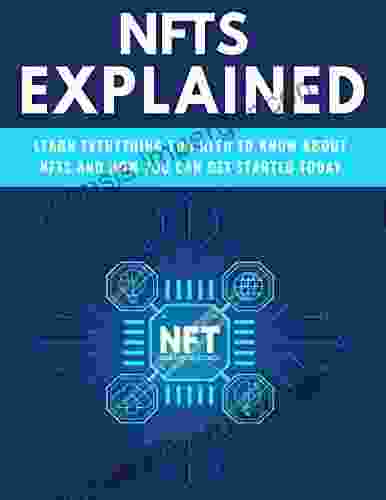
 Jeremy Cook
Jeremy CookUnlock the NFT Revolution: A Comprehensive Guide for...
The world of Non-Fungible Tokens (NFTs) has...

 Kevin Turner
Kevin TurnerSeneca and Roman Slavery Under Nero's Rule: An In-Depth...
During the reign of...
4.6 out of 5
| Language | : | English |
| File size | : | 5783 KB |
| Text-to-Speech | : | Enabled |
| Screen Reader | : | Supported |
| Enhanced typesetting | : | Enabled |
| Word Wise | : | Enabled |
| Print length | : | 365 pages |


